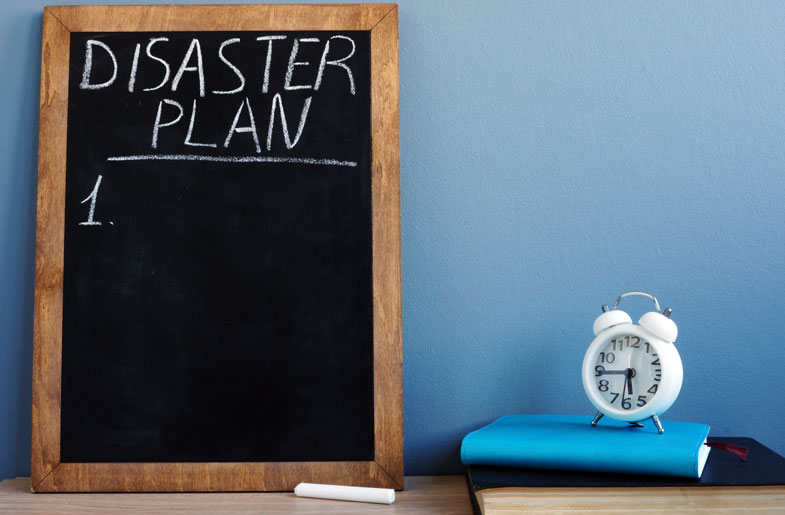When an emergency or natural disaster strikes, it is important to be prepared. This involves having access to important personal financial, insurance, medical and household records that can help you start your recovery process.

How can you best prepare for the unexpected? The Ready.gov website offers resources, tips and guidance for preparing for the impact of an emergency and lays out four simple steps for financial preparedness: compile, review, safeguard and update.
Step 1: Compile Your Documents
Assemble your important financial documents and contacts. These will primarily fall into four categories:
- Household identification.
- Financial and legal documentation.
- Medical information.
- Household contacts.
Use checklists such as the Federal Emergency Management Agency's Emergency Financial First Aid Kit to organize the documentation you should collect.
Step 2: Review Your Documents
Review your insurance policies and financial paperwork to make sure they are accurate and current.
- If you are a homeowner, ensure that your homeowners insurance coverage is enough to support you in an emergency.
- If you are a renter, verify that your renters insurance is up to date.
Step 3: Safeguard Your Documents
Store paper and electronic copies of all files in safe locations.
- For paper copies of important documents, store them in a fireproof and waterproof box, safe or in a bank safe deposit box. Consider making digital copies so that your essential documents are easily accessible.
- For electronic copies of important documents, store them in a password-protected format on a removable flash or external hard drive, stored in your fireproof and waterproof box or safe, or with a secure cloud-based service.
Step 4: Update Your Documents
Regularly revisit and update your checklists and contact forms.
Updates are especially important when you have significant changes in your life, such as marriage, death or birth of a child.
What else can you do to prepare?
- If you are able, start saving today. Consider creating an emergency savings account and keeping a small amount of cash on hand in a safe place to help you rebuild after a crisis.
- If you depend on regular benefits, such as Social Security, consider switching to electronic benefits to protect yourself in case mail service is disrupted during a disaster.
- Learn about the types of natural disasters that may occur where you live, work or travel most often.
- Stay up to date with the emergency plans in your community, children's schools and place of work.
- Make a communications plan for your household and be sure to share updated versions with all the members of your family.
Following these tips today will help you and your family be better prepared for the impact of an emergency you may face in the future.
Last reviewed: June 25, 2024
My Home in your inbox
Sign up to receive resources, tools and tips about buying, owning, refinancing, selling and renting a home in your inbox.